第22章 X WHEN FANCHONETTE BEWITCHED ME(1)
The garden in which I am straying has so many diversions to catch my eye, to engage my attention and to inspire reminiscence that Ifind it hard to treat of its beauties methodically. I find myself wandering up and down, hither and thither, in so irresponsible a fashion that I marvel you have not abandoned me as the most irrational of madmen.
Yet how could it be otherwise? All around me I see those things that draw me from the pathway I set out to pursue: like a heedless butterfly I flit from this sweet unto that, glorying and revelling in the sunshine and the posies. There is little that is selfish in a love like this, and herein we have another reason why the passion for books is beneficial. He who loves women must and should love some one woman above the rest, and he has her to his keeping, which I esteem to be one kind of selfishness.
But he who truly loves books loves all books alike, and not only this, but it grieves him that all other men do not share with him this noble passion. Verily, this is the most unselfish of loves!
To return now to the matter of booksellers, I would fain impress you with the excellences of the craft, for I know their virtues.
My association with them has covered so long a period and has been so intimate that even in a vast multitude of people I have no difficulty in determining who are the booksellers and who are not.
For, having to do with books, these men in due time come to resemble their wares not only in appearance but also in conversation. My bookseller has dwelt so long in his corner with folios and quartos and other antique tomes that he talks in black-letter and has the modest, engaging look of a brown old stout binding, and to the delectation of discriminating olfactories he exhaleth an odor of mildew and of tobacco commingled, which is more grateful to the true bibliophile than all the perfumes of Araby.
I have studied the craft so diligently that by merely clapping my eyes upon a bookseller I can tell you with certainty what manner of books he sells; but you must know that the ideal bookseller has no fads, being equally proficient in and a lover of all spheres, departments, branches, and lines of his art. He is, moreover, of a benignant nature, and he denies credit to none;yet, withal, he is righteously so discriminating that he lets the poor scholar have for a paltry sum that which the rich parvenu must pay dearly for. He is courteous and considerate where courtesy and consideration are most seemly.
Samuel Johnson once rolled into a London bookseller's shop to ask for literary employment. The bookseller scrutinized his burly frame, enormous hands, coarse face, and humble apparel.
``You would make a better porter,'' said he.
This was too much for the young lexicographer's patience. He picked up a folio and incontinently let fly at the bookseller's head, and then stepping over the prostrate victim he made his exit, saying: ``Lie there, thou lump of lead!''
This bookseller was Osborne, who had a shop at Gray's Inn Gate.
To Boswell Johnson subsequently explained: ``Sir, he was impertinent to me, and I beat him.''
Jacob Tonson was Dryden's bookseller; in the earlier times a seller was also a publisher of books. Dryden was not always on amiable terms with Tonson, presumably because Dryden invariably was in debt to Tonson. On one occasion Dryden asked for an advance of money, but Tonson refused upon the grounds that the poet's overdraft already exceeded the limits of reasonableness.
Thereupon Dryden penned the following lines and sent them to Tonson with the message that he who wrote these lines could write more:
With leering looks, bull-faced and freckled fair With two left legs, with Judas-colored hair, And frowzy pores that taint the ambient air.
These lines wrought the desired effect: Tonson sent the money which Dryden had asked for. When Dryden died Tonson made overtures to Pope, but the latter soon went over to Tonson's most formidable rival, Bernard Lintot. On one occasion Pope happened to be writing to both publishers, and by a curious blunder he inclosed to each the letter intended for the other. In the letter meant for Tonson, he said that Lintot was a scoundrel, and in the letter meant for Lintot he declared that Tonson was an old rascal. We can fancy how little satisfaction Messrs. Lintot and Tonson derived from the perusal of these missent epistles.
Andrew Millar was the publisher who had practical charge of the production of Johnson's dictionary. It seems that Johnson drew out his stipulated honorarium of eight thousand dollars (to be more exact, L1575) before the dictionary went to press; this is not surprising, for the work of preparation consumed eight years, instead of three, as Johnson had calculated. Johnson inquired of the messenger what Millar said when he received the last batch of copy. The messenger answered: ``He said `Thank God I have done with him.' '' This made Johnson smile. ``I am glad,'' said he, quietly, ``that he thanks God for anything.''